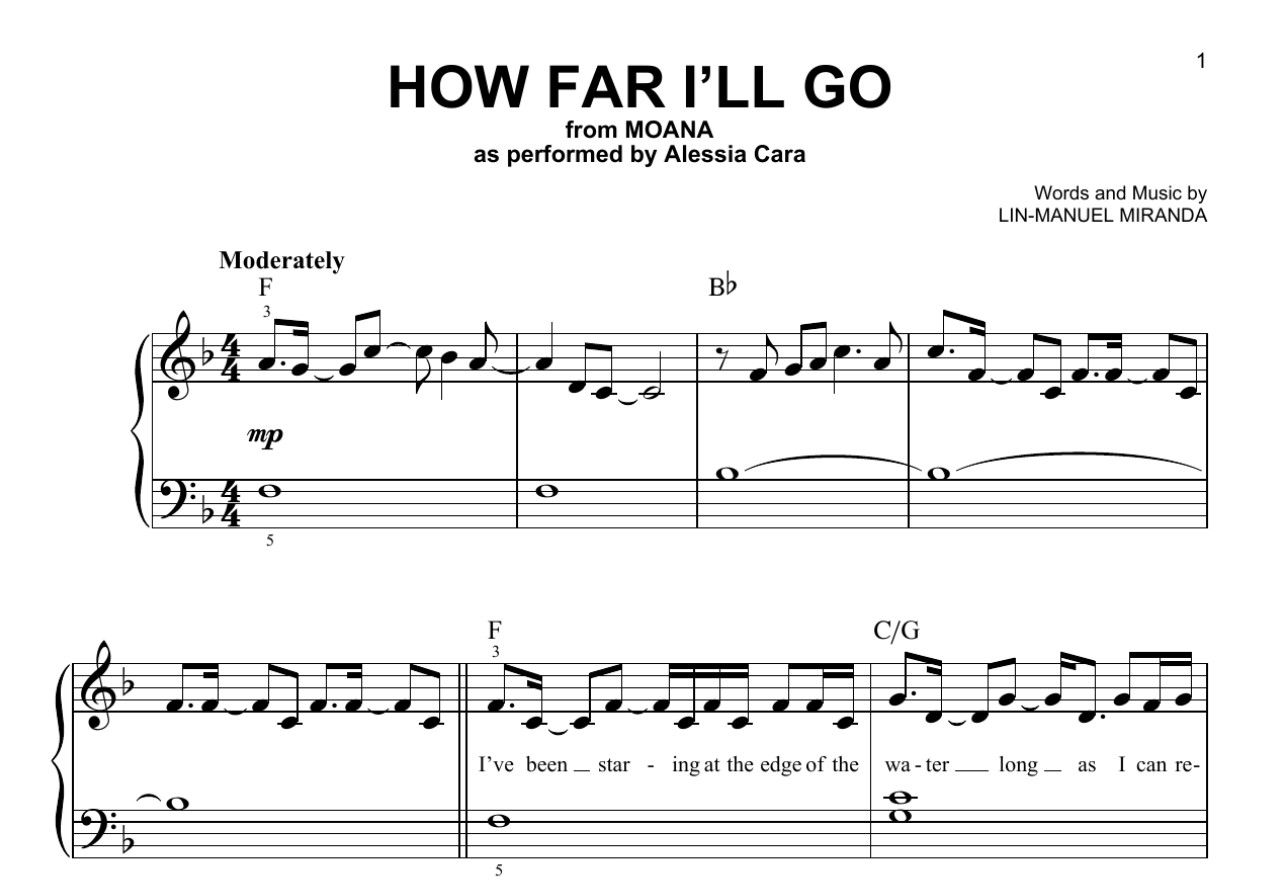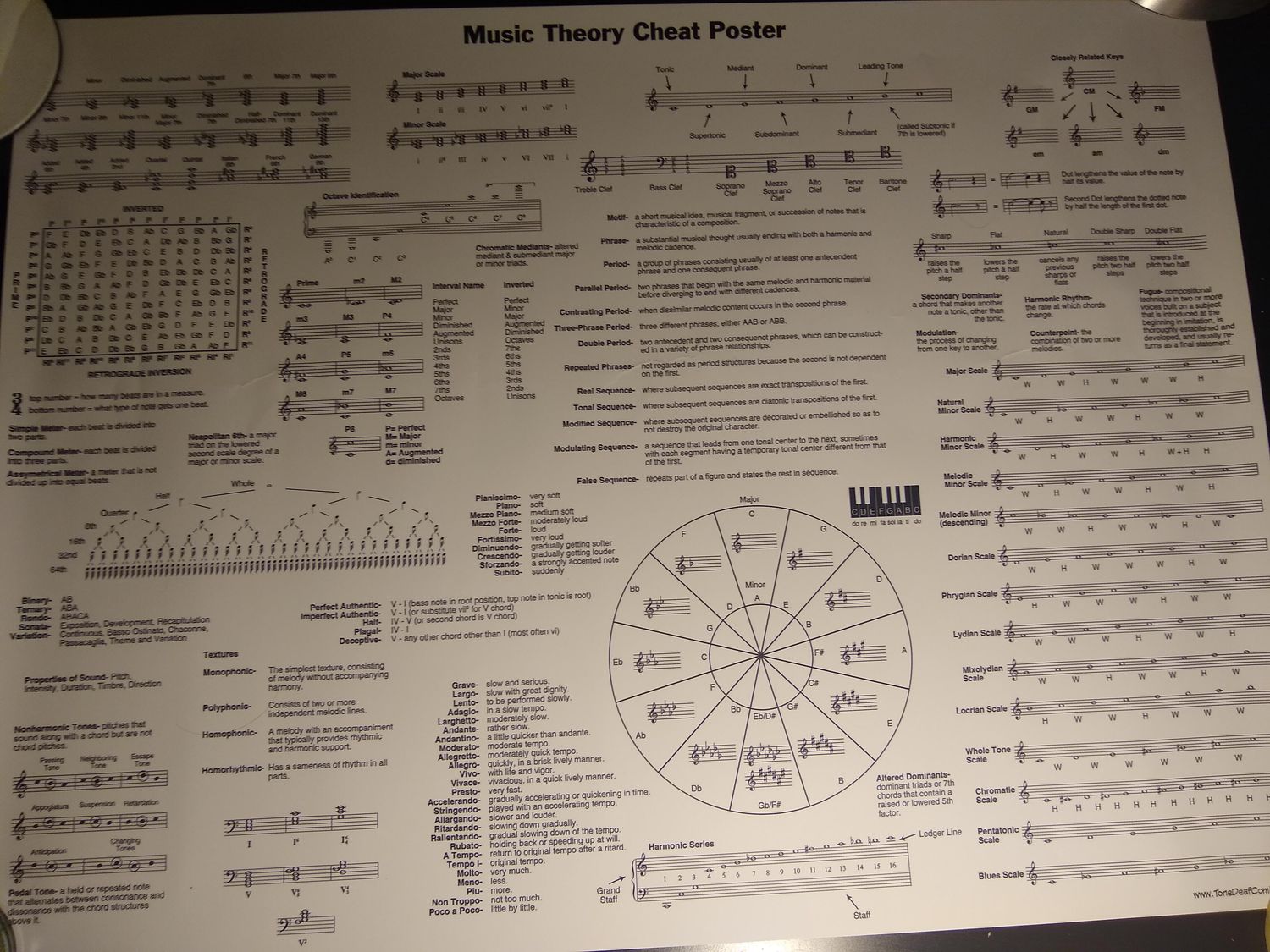Home>Production & Technology>Music Theory>I Know Music Theory How Easy Will It Be To Learn Guitar


Music Theory
I Know Music Theory How Easy Will It Be To Learn Guitar
Published: January 29, 2024
Learn guitar effortlessly by leveraging your existing knowledge of music theory. Discover how to apply your understanding of music theory to become a skilled guitar player.
(Many of the links in this article redirect to a specific reviewed product. Your purchase of these products through affiliate links helps to generate commission for AudioLover.com, at no extra cost. Learn more)
Table of Contents
Introduction
Learning to play the guitar is a dream for many music enthusiasts, but it can be a daunting task for beginners. However, if you already have a strong foundation in music theory, the journey to becoming a skilled guitarist becomes much more rewarding and enjoyable. Music theory serves as the backbone of music, providing a structure and framework that allows us to understand and create beautiful melodies, harmonies, and rhythms.
In this article, we will explore the benefits of knowing music theory before learning the guitar and how it can accelerate your progress in mastering this versatile instrument. Whether you are a seasoned musician or a complete beginner, having a solid understanding of music theory will undoubtedly enhance your learning experience and enable you to tap into the true potential of the guitar.
So, if you’re wondering whether knowing music theory in advance will help you in your guitar journey, the answer is a resounding yes. Let’s delve into the reasons why.
Benefits of Knowing Music Theory Before Learning Guitar
Having a grasp of music theory before diving into learning the guitar can provide a multitude of advantages. Let’s explore some of the key benefits:
- Understanding the Fretboard: Music theory will help you understand the relationship between notes, scales, and chords on the guitar fretboard. This knowledge allows you to navigate the instrument with ease and play in different positions. It enables you to visualize the music and find various ways to play the same melody or chord progression.
- Chord Progressions and Harmony: Music theory provides insights into the structure and progression of chords. By understanding chord construction, you can analyze and create chord progressions, giving you the ability to write your own songs, improvise, and play along with other musicians.
- Transposing and Improvising: With a solid foundation in music theory, transposing music into different keys becomes effortless. You can quickly adapt songs to suit your vocal range or the preferences of other musicians. Additionally, understanding scales and modes allows for more effective improvisation, as you can confidently experiment with different musical ideas that fit within the framework of a particular key.
- Sight-Reading and Sheet Music: Learning to read sheet music opens up a world of opportunities for guitarists. Music theory equips you with the knowledge to interpret musical notation, understand rhythms, and play complex compositions accurately. It enhances your ability to learn new songs and collaborate with other musicians, broadening your musical horizons.
- Ear Training and Intervals: Music theory helps develop your ear for music, enabling you to identify and reproduce notes, chords, and melodies by ear. This invaluable skill enhances your ability to learn songs by listening and improves your musical memory. Additionally, understanding intervals allows you to recognize and reproduce musical patterns, essential for playing by ear and creating your own music.
- Building Solos and Melodies: With a foundation in music theory, you can construct captivating solos and melodies that complement the underlying chords. Understanding scales, modes, and chord progressions empowers you to create memorable and expressive guitar parts that stand out in a song.
By knowing music theory before learning the guitar, you unlock a whole new level of musical comprehension and creativity. It streamlines the learning process and enables you to approach the instrument with confidence and a deep understanding of the music you’re playing. So, if you’re considering learning the guitar, investing time in gaining knowledge of music theory will undoubtedly pay off in the long run.
Understanding the Fretboard
One of the advantages of knowing music theory before learning the guitar is gaining a deeper understanding of the instrument’s fretboard. The fretboard can be intimidating for beginners, with its numerous frets, strings, and notes. However, with a solid foundation in music theory, you can navigate the fretboard with ease and confidence.
Music theory allows you to understand the relationship between notes, scales, and chords on the guitar. You’ll learn about the musical alphabet, intervals, and how to apply them on the fretboard. This knowledge enables you to visualize and identify notes on different strings and positions, making it easier to play melodies, chords, and scales. You’ll be able to find alternative fingerings for the same chord or scale, expanding your creativity and versatility.
Additionally, understanding music theory helps you grasp the concept of intervals and their impact on the fretboard. Intervals are the distances between notes, and they play a crucial role in creating melodies and harmonies. With knowledge of intervals, you can easily move chord shapes and scale patterns across the fretboard, transposing them to different keys. This enables you to play songs in different positions and explore new musical ideas.
Furthermore, understanding the fretboard opens up possibilities for improvisation. You’ll be able to visualize scales and their corresponding notes on the fretboard, allowing you to create melodic lines and solos on the fly. By knowing where the notes are located, you can confidently express yourself and explore the nuances of different scales and modes.
Overall, understanding the fretboard through music theory provides you with a solid foundation for playing the guitar. It enhances your ability to navigate the instrument, find different ways to play the same music, and expand your improvisational skills. So, before diving into learning the guitar, take the time to familiarize yourself with music theory and unlock the full potential of the fretboard.
Chord Progressions and Harmony
One of the fundamental aspects of music theory is understanding chord progressions and harmony. This knowledge becomes particularly valuable when learning the guitar, as chords form the foundation of many songs and playing styles.
By learning music theory before diving into the guitar, you gain a deeper understanding of how chords work together in a progression to create pleasing harmonies. You’ll learn about chord construction, chord qualities, and how chords relate to each other within a key. This knowledge enables you to analyze and create your own chord progressions, opening up endless possibilities for songwriting and improvisation.
Understanding chord progressions allows you to play songs in different keys without having to rely solely on memorization. Once you understand the relationship between chords, you can transpose songs into different keys by applying the same chord progression using different chord shapes or positions on the fretboard.
Moreover, knowing music theory helps you identify common chord progressions used in different genres of music. You’ll start recognizing patterns, such as the circle of fifths, which can be used to create harmonic movement and add variety to your playing. This knowledge allows you to anticipate chord changes and play along with other musicians more comfortably.
Additionally, understanding harmony and chord progressions opens up opportunities for improvisation. By knowing which chords are commonly used in a particular key, you can confidently and creatively play lead lines or solos that harmonize with the underlying chords. This skill allows you to express yourself more effectively and add your unique musical voice to any song.
Overall, a strong foundation in music theory sets the stage for understanding chord progressions and harmony on the guitar. It empowers you to analyze, create, and transpose chord progressions, giving you the flexibility and confidence to explore different musical styles and express your musical ideas. So, if you’re considering learning the guitar, invest time in learning music theory and unlock the power of chord progressions and harmony.
Transposing and Improvising
Understanding music theory before learning the guitar offers significant advantages when it comes to transposing music and improvisation. Transposing refers to changing the key of a song or piece of music. It allows you to adapt music to match your vocal range or the preferences of other musicians you are playing with. Additionally, understanding music theory provides a solid foundation for improvising, allowing you to create your own unique musical ideas on the spot.
Transposing music becomes much easier when you have a strong grasp of music theory. By understanding scales, intervals, and chord progressions, you can quickly and accurately transpose a song into a different key. This skill is invaluable when playing with other musicians or performing cover versions of songs that may not be in your preferred key. It also helps you understand how different keys relate to one another, expanding your musical versatility.
Improvisation is a key component of playing the guitar, and music theory plays a vital role in this area. With a foundation in music theory, you understand the relationships between scales, modes, and chords, giving you the tools to create melodic and harmonic ideas on the fly. By using the knowledge of scales and their corresponding chord progressions, you can confidently explore different musical ideas that fit within a particular key or musical context.
Furthermore, understanding music theory enhances your ability to structure and develop your improvisations. You can use your knowledge of chord progressions and scales to create tension and release, build musical phrases, and create dynamic solos. This skill allows you to express your musical ideas more cohesively and adds depth to your playing.
By being equipped with music theory knowledge before learning the guitar, you have the advantage of being able to transpose music effortlessly and dive into improvisation with confidence. These skills not only enhance your playing but also allow you to connect with other musicians more easily and develop your unique musical voice. So, take the time to learn music theory alongside your guitar journey, and watch your ability to transpose and improvise soar to new heights.
Sight-Reading and Sheet Music
Knowing music theory before learning guitar provides a solid foundation for sight-reading and interpreting sheet music. Sight-reading is the ability to read and play music on the spot, while sheet music is the written representation of musical notes and symbols.
Understanding music theory allows you to decipher sheet music more effectively. You’ll be able to recognize and understand the symbols, notation, and dynamics used in written music, making it easier to learn and play new songs. Concepts such as key signatures, time signatures, and rhythmic notation become second nature, giving you the confidence to tackle more complex compositions.
Moreover, knowledge of music theory helps you analyze the structure of a piece of sheet music. You can identify chord progressions, key changes, and other musical elements that shape the composition. This analysis allows for a deeper understanding of the music and gives you insight into stylistic choices made by the composer.
Sheet music is not only important for playing existing compositions but also for composing and arranging your own music. With a solid foundation in music theory, you can write down your musical ideas, create arrangements, and communicate with other musicians more effectively through the language of sheet music. This skill opens up opportunities for collaboration and expands your musical horizons.
Sight-reading is a valuable skill for any musician, and music theory plays a crucial role in its development. With a strong understanding of music theory, you can read and interpret notation more quickly, allowing you to play new pieces more accurately and efficiently. You’ll be able to sight-read melodies, chords, and complex rhythms, giving you the ability to learn music at a faster pace.
By knowing music theory before learning guitar, you gain a significant advantage in sight-reading and interpreting sheet music. This skill not only allows you to play a wider range of music but also enhances your overall musicianship. So, embrace the knowledge of music theory alongside your guitar journey, and unlock the world of sheet music and sight-reading.
Ear Training and Intervals
A strong foundation in music theory before learning the guitar can greatly enhance your ear training abilities and understanding of intervals. Ear training is the process of developing your ability to recognize and reproduce musical sounds by ear, while intervals refer to the distance between two pitches.
By understanding music theory, you can train your ear to recognize different intervals and their unique sound characteristics. This skill enables you to identify and reproduce melodies, chords, and harmonies without relying heavily on sheet music or tablature. You’ll develop a better sense of pitch, allowing you to play in tune and accurately replicate the music you hear.
Ear training is an essential skill for any musician, as it enables you to play by ear and improvise freely. By training your ear to hear intervals, you can easily transcribe and play melodies or solos from your favorite songs without having to rely on written music. This ability allows for greater flexibility and creativity in your playing, as you can add your personal touch to the music you play.
Understanding intervals also helps you in recognizing and creating musical patterns. By knowing the distance between notes, you can identify recurring melodic or harmonic motifs in a piece of music. This knowledge allows you to build your own solos or melodies based on these patterns, adding cohesion and structure to your improvisations.
Furthermore, intervals play a significant role in harmonizing melodies and constructing chords. By understanding intervals, you can build chords by stacking notes at specific intervals. This knowledge helps you create rich and harmonically pleasing chord voicings and understand how chords function within a given key.
Overall, knowledge of music theory contributes to your ear training abilities and understanding of intervals. By training your ear, you can play by ear, improvise, and recognize musical patterns more easily. This skill enhances your overall musicianship and allows for greater personal expression on the guitar. So, embrace the journey of ear training alongside your guitar learning and witness the transformation it brings to your playing.
Building Solos and Melodies
When it comes to creating captivating solos and melodies on the guitar, a strong foundation in music theory is invaluable. Knowledge of music theory allows you to understand the relationship between scales, chords, and harmony, providing you with the tools to build engaging and melodic guitar solos.
With music theory, you can confidently select the appropriate scales and modes that fit the chords and key of the piece you’re playing. By understanding how these scales relate to the underlying harmony, you can create melodies that are not only musically pleasing but also harmonically coherent.
Furthermore, understanding chord progressions and their corresponding scales unlocks the ability to target chord tones in your solos. By emphasizing these tones, you can create melodic lines that connect with the underlying harmony and add an extra layer of musicality to your solos. This technique adds depth and meaning to your improvisations, taking your solos from mere scales to melodic masterpieces.
Additionally, music theory provides knowledge of melodic and rhythmic concepts that enhance your ability to create memorable guitar solos. Understanding rhythm allows you to incorporate interesting rhythmic patterns and phrasing into your solos, adding excitement and variety to your playing. Melodic concepts such as motifs and sequences allow you to develop themes and motifs within your solos, creating a sense of continuity and structure.
Moreover, a strong foundation in music theory expands your understanding of musical techniques and ornamentations that you can incorporate into your solos. Techniques such as bends, vibrato, slides, and hammer-ons/pull-offs can be employed strategically to add expression and color to your melodies. By understanding these techniques in a musical context, you can use them to enhance your solos and create unique sonic experiences.
Overall, music theory serves as a guide for building solos and melodies on the guitar. It provides the necessary tools and concepts for selecting the right scales, understanding chord progressions, and incorporating melodic and rhythmic elements into your playing. By harnessing the power of music theory, you can elevate your guitar solos to new heights and create memorable musical moments.
Conclusion
In conclusion, having a solid foundation in music theory before learning the guitar can significantly enhance your musical journey and accelerate your progress as a guitarist. Understanding music theory unlocks a world of possibilities, allowing you to navigate the fretboard with ease, comprehend chord progressions and harmony, and transpose music effortlessly.
By knowing music theory, you can more effectively interpret sheet music, improving your sight-reading abilities and enabling you to play a wider range of songs. This knowledge also helps train your ear to recognize intervals and develop a better sense of pitch, allowing for more accurate playing and the ability to play by ear.
Music theory provides the foundation for building solos and melodies, helping you create captivating and expressive guitar solos. By understanding scales, chords, and their relationship to harmony, you can construct melodic lines that connect with the underlying chord progressions, adding depth and musicality to your playing.
Ultimately, having a strong understanding of music theory gives you the confidence and tools needed to explore different musical styles, collaborate with other musicians, and unleash your creativity on the guitar. It opens up a world of musical possibilities and allows you to tap into the true potential of this versatile instrument.
So, whether you are a beginner embarking on your guitar journey or a seasoned guitarist looking to deepen your musical knowledge, investing the time to learn and understand music theory will undoubtedly pay off. It will not only enhance your playing but also expand your understanding and appreciation of music as a whole.
Remember, learning music theory and the guitar go hand in hand. So, embrace the journey, nurture your knowledge of music theory, and watch as your guitar playing flourishes and evolves into something truly extraordinary.











